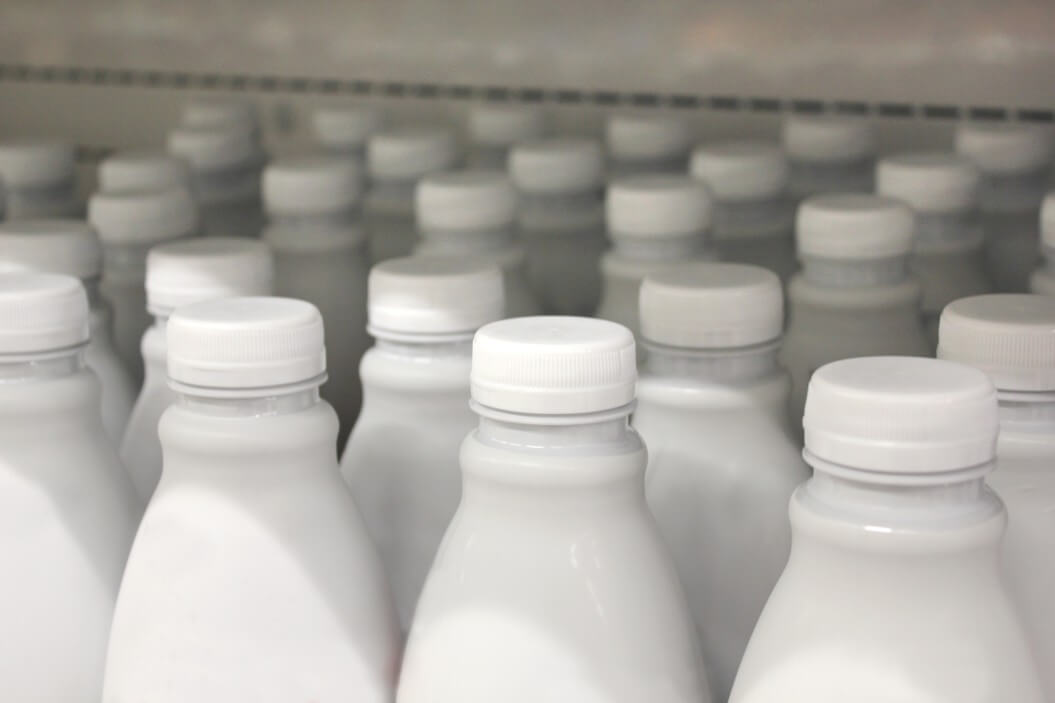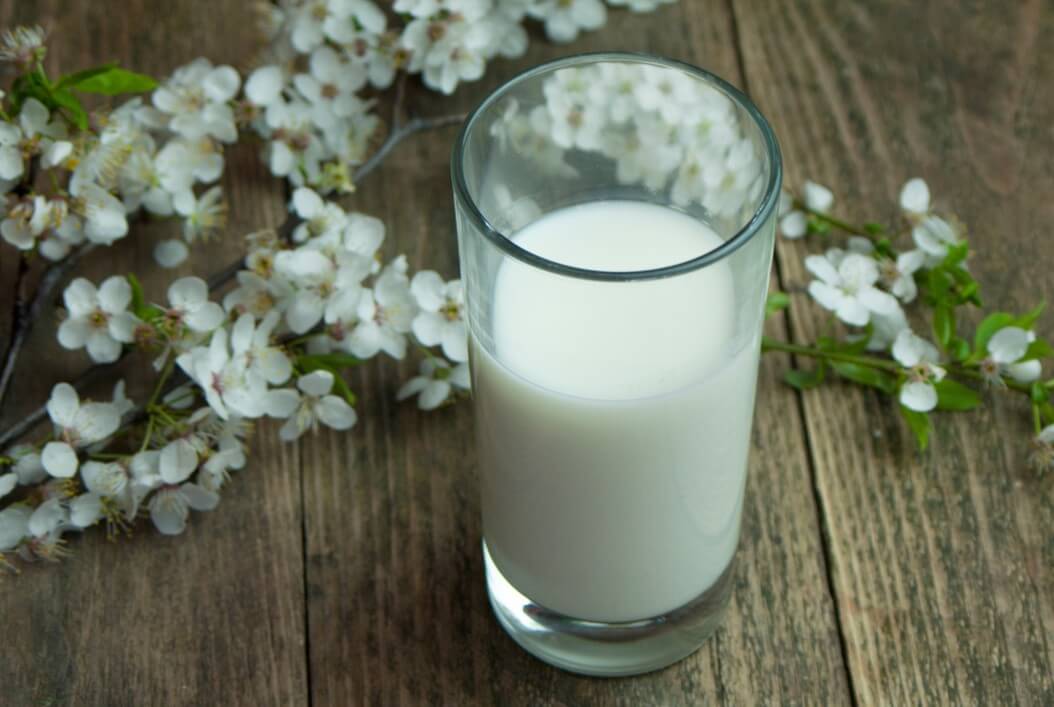Almond Milk vs. Skim Milk
Almond milk and skim milk are both lower-calories alternatives to whole milk, but they're very different from each other. Here's how to decide between the two.
Almond milk and skim milk are both lower-calories alternatives to whole milk, but they're very different from each other. Here's how to decide between the two.
Skim milk has been a part of the human diet for decades. However, with the rise of vegan and alternative diets, plant-based milk has become a common sight in stores.
This begs the question - which one is better?
Skim milk is best suited for those hoping to gain weight or muscle mass, but almond milk may be the choice for you if you want a lower calorie option or are trying to stay away from animal-based products.
This, however, only scratches the surface and there's plenty more to this question than that. Let's dive into this topic more to find out which option is best for you.
Though both options make a great latte, there are several inherent differences between almond milk and skim milk. Let's briefly talk about those differences now before launching into the pros and cons of each.
This one is pretty self-explanatory, but it's worth mentioning nonetheless. Skim milk is an animal product whilst almond milk is a plant-based one.
Unlike skim milk, almond milk can be kept at room temperature without it spoiling. However, almond milk tastes best cold - so for maximum enjoyment, put your carton in the fridge.
Of course, the radical difference in source material means skim and almond milk have huge nutritional differences. Here's a look at the nutritional facts for almond and skim milk.
1 Cup | Almond Milk | Skim Milk |
|---|---|---|
Calories | 39 | 79 |
Protein | 1g | 8g |
Fat | 3g | 0g |
Carbohydrates | 4g | 12g |
Fiber | 1g | 0g |
Sugar | 2g | 12g |
Data sources: Almond milk, Skim milk, Disclaimer about this information
Now that we've covered the key differences between the two, let's take a look at the pros and cons of each to decide which one is best for you.
There are several advantages to drinking almond milk.
Here's a video that breaks down the pros and cons, or read below for even more info.
A cup of almond milk has just 30 calories making it ideal for light smoothies and protein shakes.
If you suffer from lactose intolerance or simply don't like the taste of lactose products, then almond milk is a great option for you.
Since almond milk is a plant-based product, you don't need to worry about your ethical guidelines being breached by drinking it.
Skim milk needs to be kept refrigerated at all times yet almond milk can be drunk at any temperature. This makes it ideal for on-the-go consumption. However, keep in mind that almond milk is best served cold.
If you're trying to keep your cholesterol consumption down, then making the switch to plant-based milk will be a great idea.

With all this in mind, it seems that almond milk is a fantastic option if you’re hoping to keep your overall caloric intake down.
However, just like anything else, almond milk is not without its drawbacks.
The downsides of almond milk include:
Protein is essential for building muscle and maintaining strength. A cup of almond milk contains only 1 gram of protein, compared to 8 grams for skim milk.
If you're hoping to build muscle mass, almond milk may not be the option for you.
Pro tip: Boost almond milk's protein content by mixing it with protein powder.
This may come as a surprise for most, but almond milk is low on, well, almonds.
In fact, a carton of almond milk may only contain around 5-6% pure almond.
This is due to how the drink is made. Almonds are soaked in water, submerged for a time, and then blitzed up before the additives come in.
Though almonds themselves are very healthy, they lose a lot of their nutrients when they're turned into milk.
The low-fat, high-fiber content of almond milk means that it's unsuitable for infants as their sensitive digestive systems could react badly to it.
Next, let's take a look at skim milk and weigh up its pros and cons.

Here are some of these benefits of skim milk.
As we stated before, skim milk (or any cow's milk) is naturally high in protein and can offer up to 8 grams of protein per cup.
If you're hoping to gain muscle mass or are recovering from a disease, then drinking skim milk will provide some of the proteins and essential minerals you'll need.
One cup of skim milk contains 25% of your daily Vitamin D requirements as well as 11% of your daily potassium needs.
This makes it more nutritionally dense than almond milk.
A lot of people scoff at vegan diets due to the increased prices compared to carnivore diets. Skim milk is cheaper than almond milk virtually everywhere in the world.
If you're on a tight budget, then sticking to skim milk may be the ideal option.
Skim milk is also way easier to find than plant-based milk. Nearly every store sells skim milk, whereas not every store sells almond milk.
Skim milk has a lot of benefits, but it also has its fair share of downsides. Let's look at those now.
When you're shopping for skim milk (or any dairy product for that matter), don't just look for the cheapest option. When possible, opt for organic grass-fed dairy products over conventional milk.
As good as skim milk is, it's not without its negatives. From its cholesterol level to its caloric content, there are a few things wrong with consuming it regularly.
Skim milk is a dairy product meaning it's unsuitable for people with lactose intolerance. If you suffer from this, avoid skim milk at all costs.
Though this may not be an issue for some, the fact that skim milk is an animal product may raise ethical issues.
If you're a vegan or just want to consume less animal products, skim milk isn't the option for you.
If you suffer from diabetes, then it's perhaps best to leave the skim milk behind.
Though the sugars are natural, it could still raise alarm bells if you have the condition or are simply hoping to reduce your sugar content.
Consult with your physician about using any type of milk with a high amount of sugar.
This entirely depends on your goals as both options have their respective pros and cons. However, almond milk is better if you wish to:
On the other hand, skim milk is better if you wish to:

With all these things considered, you may be asking yourself which one of the two options is healthier.
The word 'healthier' is relative as both drinks offer different things appealing to different people. There is no undisputed winner when it comes to picking out a healthier choice - it just depends on your goals.
Almond milk is the healthier option as it's lower in calories, fat, and cholesterol. This means that if you want to lose weight or get a six-pack for summer, then it's the healthier option.
With that in mind, let's take a look at skim milk.
Skim milk is the healthier option as it contains more amino acids, protein, and vitamins. This makes it the healthier choice for those seeking to gain strength, muscle, and overall weight.
There is no stand-out winner between the two as the benefits are entirely subjective. What is a benefit for one person may be considered a drawback for another and vice-versa.
Of course. If you're unsure about sticking to just one, following a hybrid diet is a great way to maximize the benefits of both. You can have a protein shake with skim milk before working out and an almond milk smoothie afterwards, for example.
Skim milk contains less than 0.5% fat, meaning that most of the initial fat content has been skimmed off. Skim milk is low in fat, but not fat-free.
Due to its lower calorie content, almond milk is the better option for weight loss as it contains only 30 calories per cup. If your goal is weight loss, then consider trading in skim milk for almond (or any other plant-based alternative).
There are several inherent differences between drinking skim milk and almond milk. However, we recommend almond milk as an every-day choice, because consuming too much dairy can have negative effects.
As always, consult your physician if you have any questions about how either milk will affect your health.